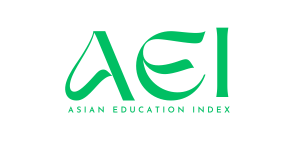Modern Methods of Linguopoetic Analysis in Uzbek Poetry and Their Educational Significance
Keywords:
Linguopoetic analysis, Uzbek poetry, cognitive linguistics, stylistics, discourse analysis, education, cultural competence.Abstract
This article explores modern methods of linguopoetic analysis in Uzbek poetry, focusing on the integration of linguistic, stylistic, and cultural approaches to interpret poetic texts. The study highlights how contemporary linguopoetic techniques—such as cognitive, semiotic, and discourse analysis—enable a deeper understanding of the aesthetic and emotional dimensions of Uzbek poetic language. The educational significance of these methods is also emphasized, particularly their role in developing students’ linguistic thinking, interpretive skills, and appreciation of national literary heritage. The findings demonstrate that linguopoetic analysis not only enhances literary comprehension but also strengthens cultural and communicative competence in language education.
References
1.Akhmadaliyeva, G. B. (2025). Study of Uzbek poetry in a linguopoetic aspect. Multidisciplinary Journal of Science and Technology.
2.Kodirova, D. K. (2022). Scientific interpretation of linguopoetics of poetry in Uzbek language. Academicia Globe: Inderscience Research, 3(03), 284-289.
3.Ortiqova, N. Y. (2022). Linguopoetic characteristics of homonyms (based on the poems of A. Obidjon). Web of Scientist: International Scientific Research Journal, 3(12).
3.Ashurova, Z. S. (2023). Modern children poetry and his linguopoetic analysis. International Journal of Discoveries and Innovations in Applied Sciences, 3(6), 10–13.
4.Sharipova, M. K. (2025). Analysis of literary texts in “Practical Stylistics of the Uzbek Language” classes: modern teaching methods and the potential of artificial intelligence. International Journal of European Research Output (IJERO), 4(4).
5.Khojieva, S. (2023). Linguistic and linguistic review of national-cultural characteristics in Zulfiya Mominova’s poetry. American Journal of Science and Learning for Development, 2(5), 85–91. 6.Avazova Lobar Buriyevna “DEVELOPING STUDENTS ORAL AND WRITTEN SKILLS THROUGH PEER ASSESSMENT”











